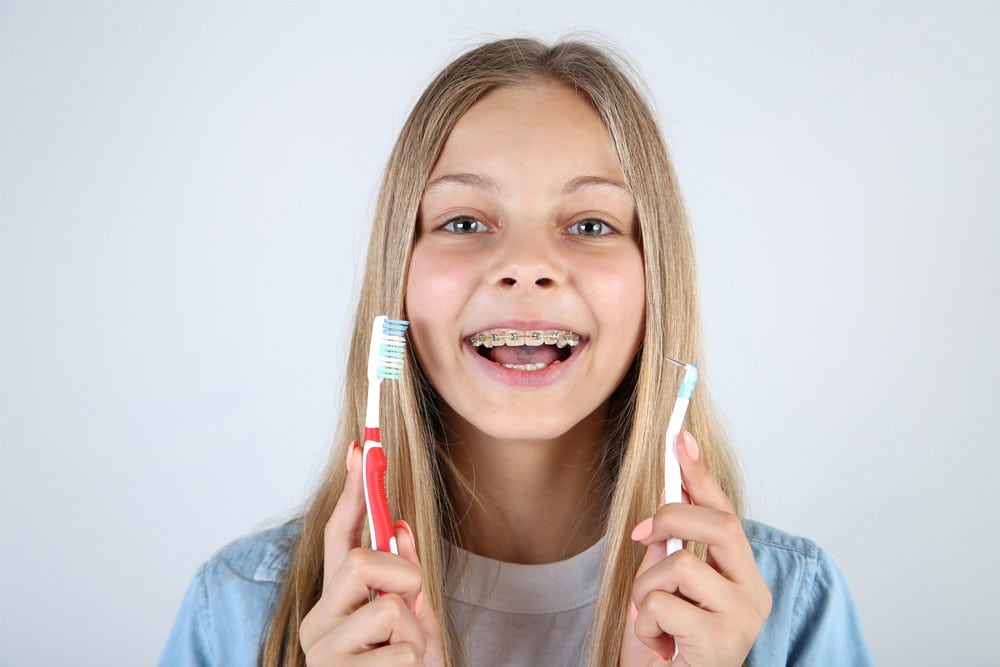Most people start orthodontic treatment with the end goal in mind. But it’s just as important to focus on how you can maintain your dental health while improving your smile. This is especially true when you have braces, since this traditional orthodontic treatment can increase your risk for tooth decay during treatment. However, your teeth will be in better shape than ever when your braces are off and you can expect better dental health in the long run, making the work you put in to protect your teeth well worth it.
Braces and Plaque Buildup
Tooth decay occurs when bacteria accumulates on the teeth and turns into plaque. This buildup of plaque is the direct result of food particles not being thoroughly cleaned off the surface of the teeth.
While your braces are hard at work correcting issues like crowding, spacing, and bite problems, they, unfortunately, are also likely to trap food particles. The system of brackets and wires also tends to make it a bit tricky to get a thorough clean. It’s not very easy to reach the places that need to be cleaned when there are metal pieces resting on and just above the surface of your teeth.
Thankfully, getting around this dilemma is relatively easy.
Cleaning Your Teeth with Braces
The key to fighting plaque buildup with braces, and subsequently the tooth decay that can follow, is to boost your cleaning routine. Ideally, you should brush your teeth after each meal and take your time to clean the entire surface of each tooth.
Another aspect of braces that can increase the risk of tooth decay and gingivitis is they make it difficult to floss. However, investing in a floss threader or floss picks can make it easier to get the floss where it needs to go. To thoroughly protect your teeth, you should floss at least once per day.
When it comes to picking out your toothbrush, studies show that electric toothbrushes remove more plaque. You’ll also likely appreciate the reduced effort of using an electric toothbrush. To make it even easier to brush with braces, you can find toothbrush heads specifically designed to work around your brackets.
Adding supplemental cleaning methods, such as rinsing with mouthwash or using a water flosser, can be helpful, but they should never be used to replace brushing and flossing.
How Braces Prevent Tooth Decay
Alright, after hearing about how braces can increase your risk of tooth decay, you may be wondering why they’re such a good idea. While you’ll be at a higher risk of tooth decay during your time with braces, having straighter teeth once they’re off will drastically reduce your chances of tooth decay. This is because fixing crowding and rotating teeth to their proper positions makes it harder for food to get trapped and easier to reach the spots that need to be cleaned. Plus, when you straighten out your bite, you’ll avoid problems like teeth wearing down from uneven pressure.
To learn more about how braces can improve your teeth, contact Smith Orthodontics today and schedule a free consultation!






